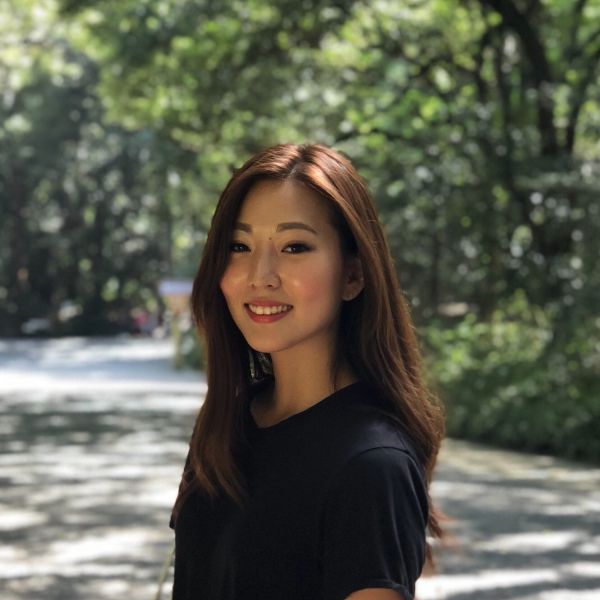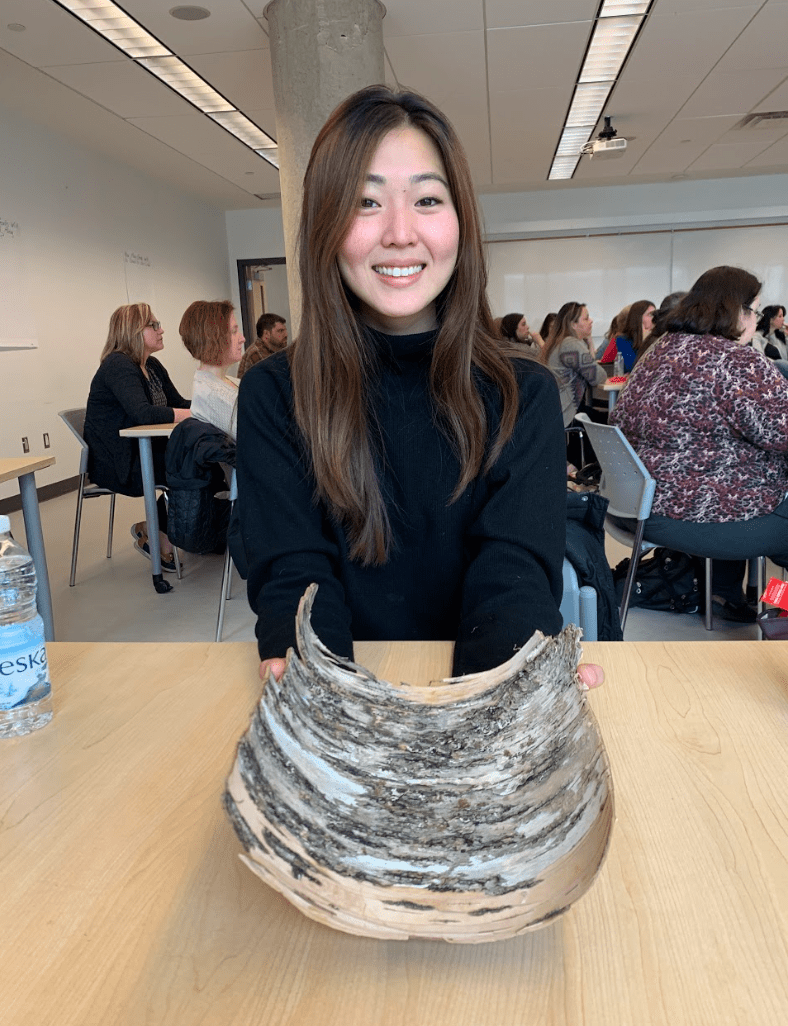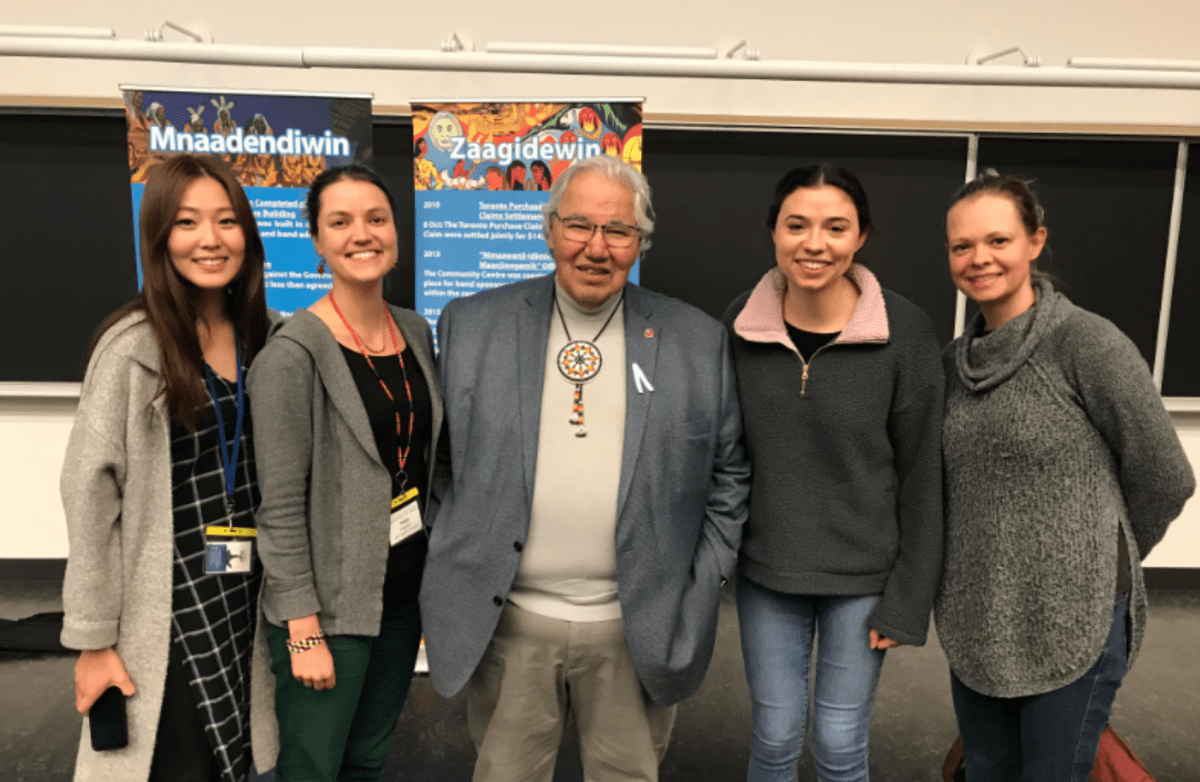Image

Age: 28
Canada
Rosa (she/her) is an education professional dedicated to creating and delivering impactful programming with a focus on social and environmental sustainability and reconciliation.
How are you using education to build more sustainable and equitable communities?
One of the most valuable lessons I have learned during my time as program manager at Natural Curiosity (NC), a Canadian organization that advocates for the inclusion of Indigenous perspectives in environmental and all education, is that education is more about the process of asking the right questions than it is about finding the “right answer.” In 2018, NC published its 2nd Edition: The Importance of Indigenous Perspectives in Children’s Environmental Inquiry, which is a groundbreaking rewrite of the first edition that had lacked the recognition of Indigenous perspectives and their importance to EE. Deepened by an Indigenous lens, NC 2nd Edition inspired thousands of educators to see their role and responsibility more clearly reflected in the reconciliation process and in connection to EE. While the work of NC advanced Canadian EE in significant ways, it also revealed new challenges—how do we support educators by bringing Indigenous perspectives into practice? How do we engage Indigenous partnership appropriately and in reciprocity?
Responding to these new questions, over time and in relationships with community partners, became the heart of my work at NC. We hosted an Indigenous Education Advisory meeting with key stakeholders, whose recommendations guided the creation of a new 3-year strategic plan. I dedicated the last two years to realizing the various commitments detailed in this roadmap, expanding our program portfolio, impact, and reach by threefold. None of our successes would have been possible without a commitment to continuously recognizing what we do not know, trying out new ideas, having brave conversations, and reaching out to community partners to take action and reflect. I believe that embracing this iterative and ongoing process of learning can add as much value to our collective journey towards a sustainable and equitable future for all as much as any other (product-oriented) environmental solutions of our time.
Tell us about your journey to where you are today.
I am a guest on Turtle Island with roots that stretch to my birthplace in Cheongju, Korea. I live and work in Toronto, in the traditional territories of the Wendat, Seneca, and Mississaugas of the Credit First Nation. After my undergraduate studies in Environmental Science, Conservation, and Indigenous Studies at the University of Toronto (UofT), I worked with various nonprofits, including Green Teacher and Learning for a Sustainable Future, where I developed a deep respect for education as a vehicle for healing our relationship to the earth. This awareness materialized into a real purpose in 2018 when I was hired as the Coordinator of NC, during a pivotal time when the organization was beginning to include an explicit commitment to reconciliation in all its programming. Over the last two years, I had the privilege of serving NC as its manager, providing transformative professional learning and resources for 20,000+ North American educators annually. I take immense pride in how NC’s intercultural, heart-based approaches to education transformation are inspiring thousands of educators and students to relate more deeply to the natural world in ways that are informed by Indigenous perspectives on learning and living in reciprocity with the land.
Today, I am serving as the program manager of Schulich ExecEd at York University, where I am committed to further developing and contributing my professional experience towards generating societal and environmental value for future generations.
A LITTLE MORE ABOUT ME
What makes you most excited to be an EE30U30 awardee?
My experience in EE so far has connected me with some of the kindest, most interesting, and inspiring people I have ever met in my life. It is clear that EE30U30 is a collective of trailblazers and lifelong learners with the skills, connections, and passion to embrace all that I have to offer, and take it to new heights—I am most honored and excited to be a part of this inspiring community.
What (or who) keeps you hopeful for the future?
What keeps me hopeful for the future is seeing environmentalism show up in different shapes and forms through diverse fields of work, disciplines, spaces, art, and all aspects of society. Caring for the earth is a responsibility that can and should be shared by everyone, no matter our personal or professional calling (not just “environmentalists”). I can really see that unfolding in creative ways with the new generation, and I think that is a beautiful shift.
What are you happiest doing?
I am happiest when I am simply being, somewhere out in the natural world, and in the company of my loved ones.
What book, film, or art piece has had the greatest impact on you?
In addition to must-read’s in Indigenous Literature like Braiding Sweetgrass by Robin Wall Kimmerer or Seven Fallen Feathers by Tanya Talaga, a poem I once received as a gift on a crumpled piece of paper from a dear friend comes to mind: “Emergence” by Joy Harjo, United States Poet Laureate. This poem always re-connects me to my “why,” and warms my heart with the familiar passion I have always had for the natural world.

Rosa learning Indigenous math at a conference. Photo credit: Natural Curiosity

Natural Curiosity team with Senator Murray Sinclair, head of TRC, at the Importance of Indigenous Perspectives in Ontario Classrooms Conference. Photo credit: Natural Curiosity